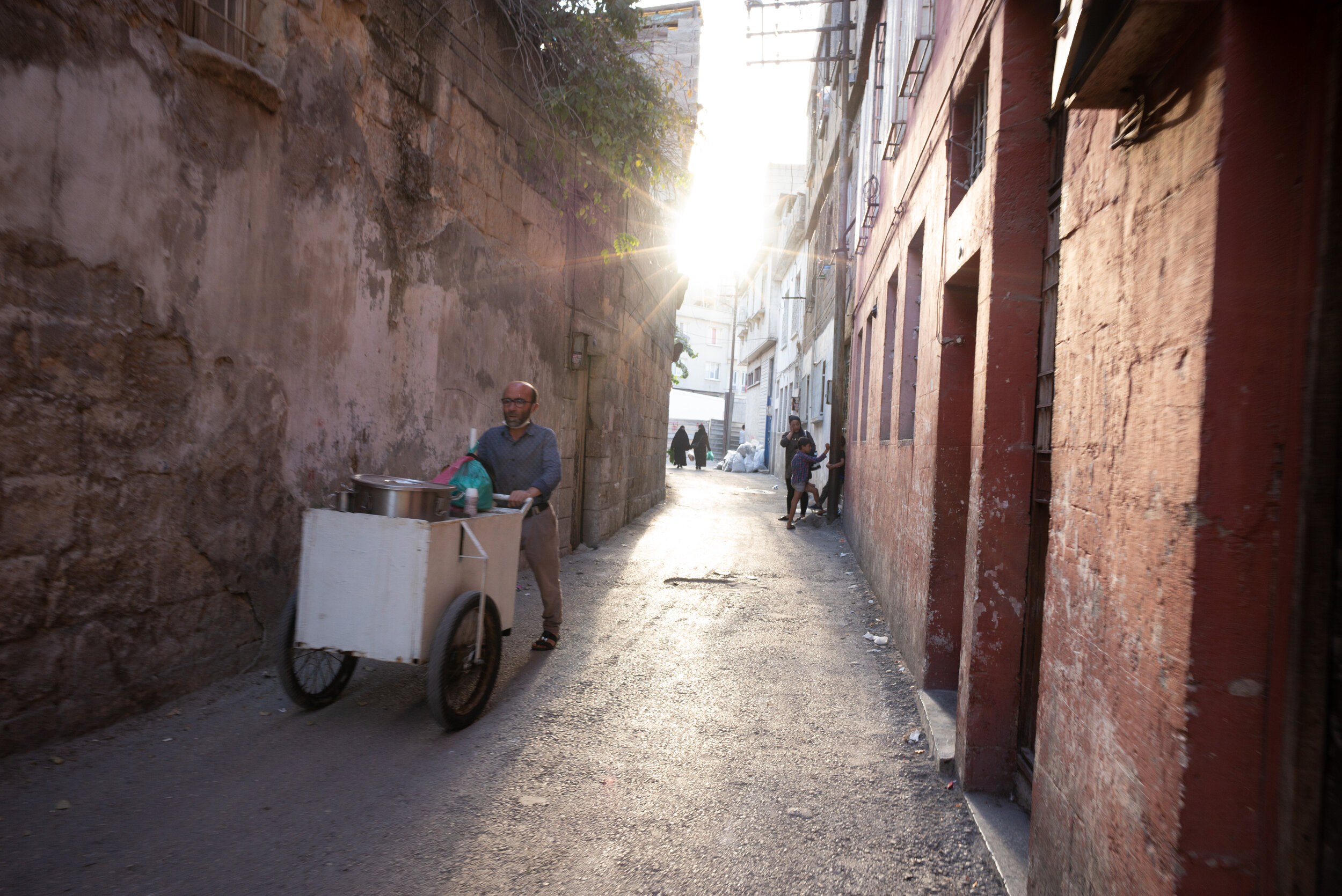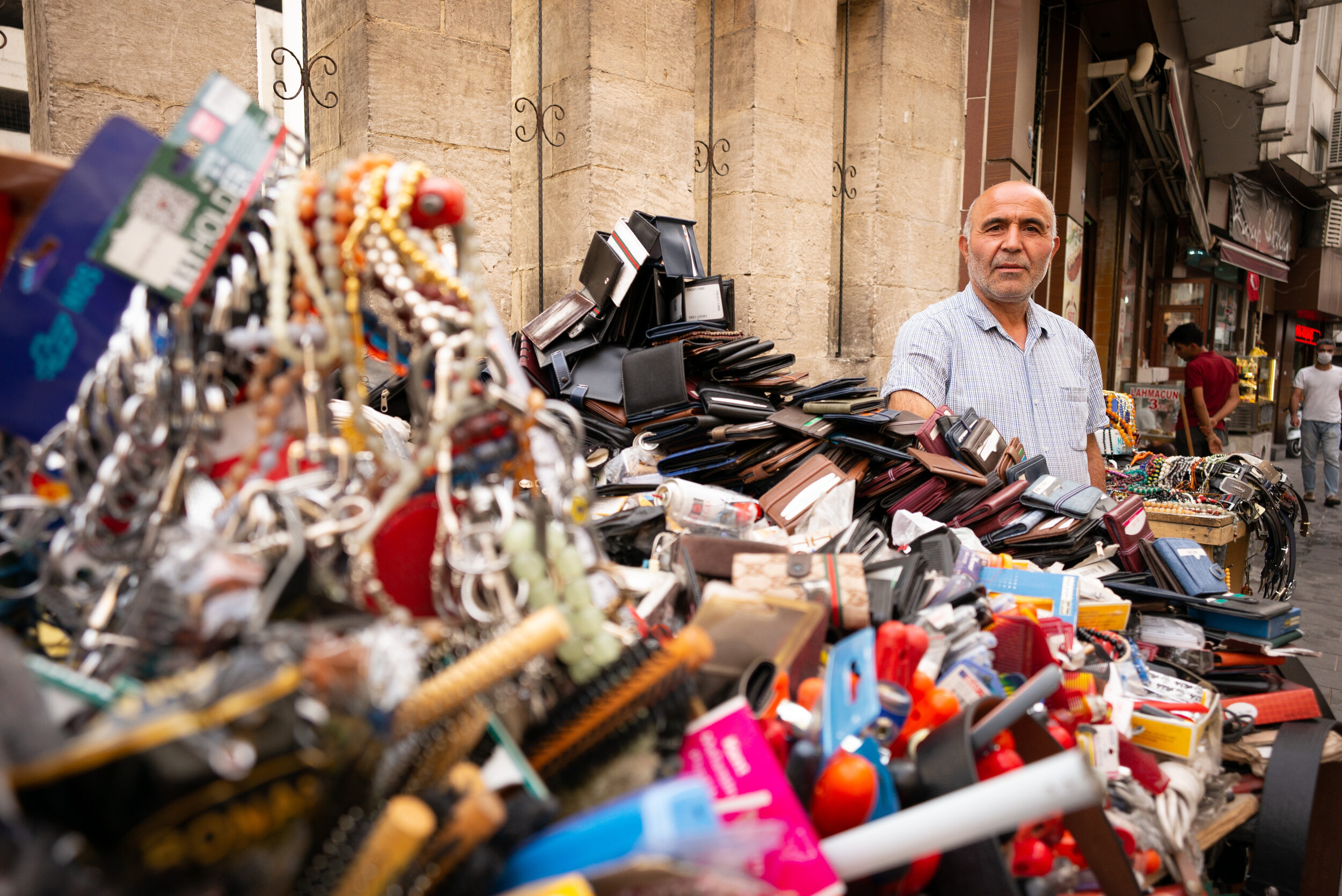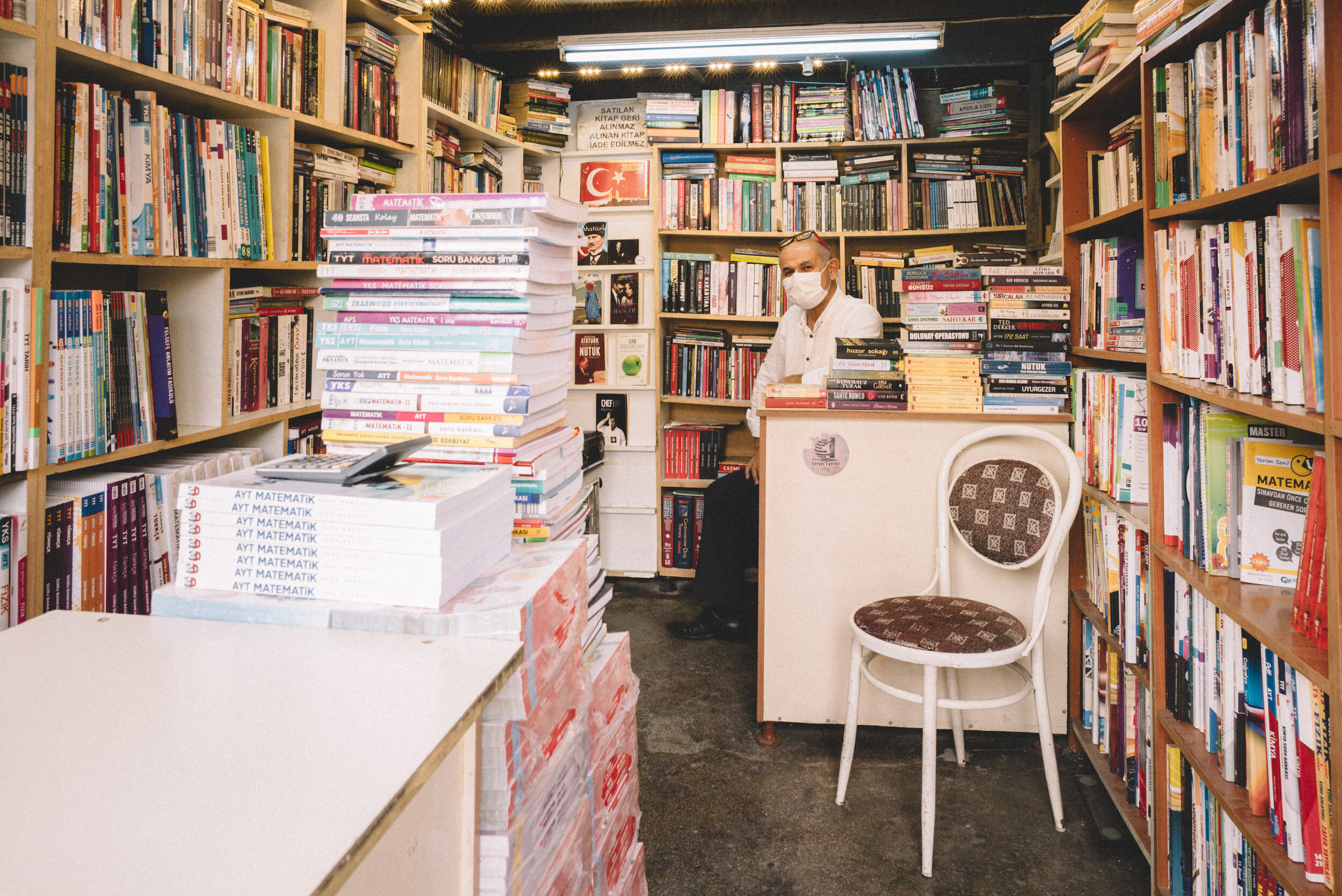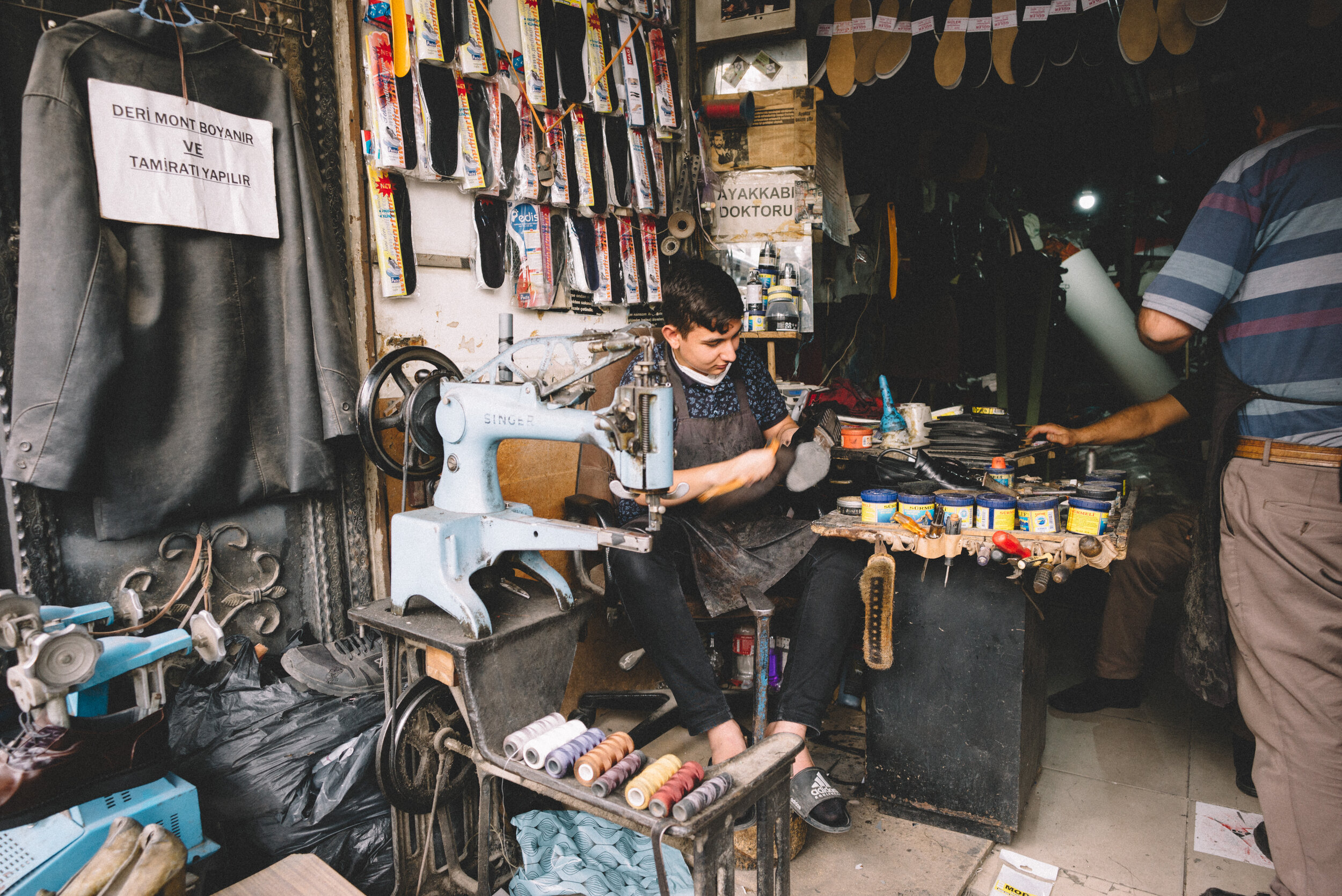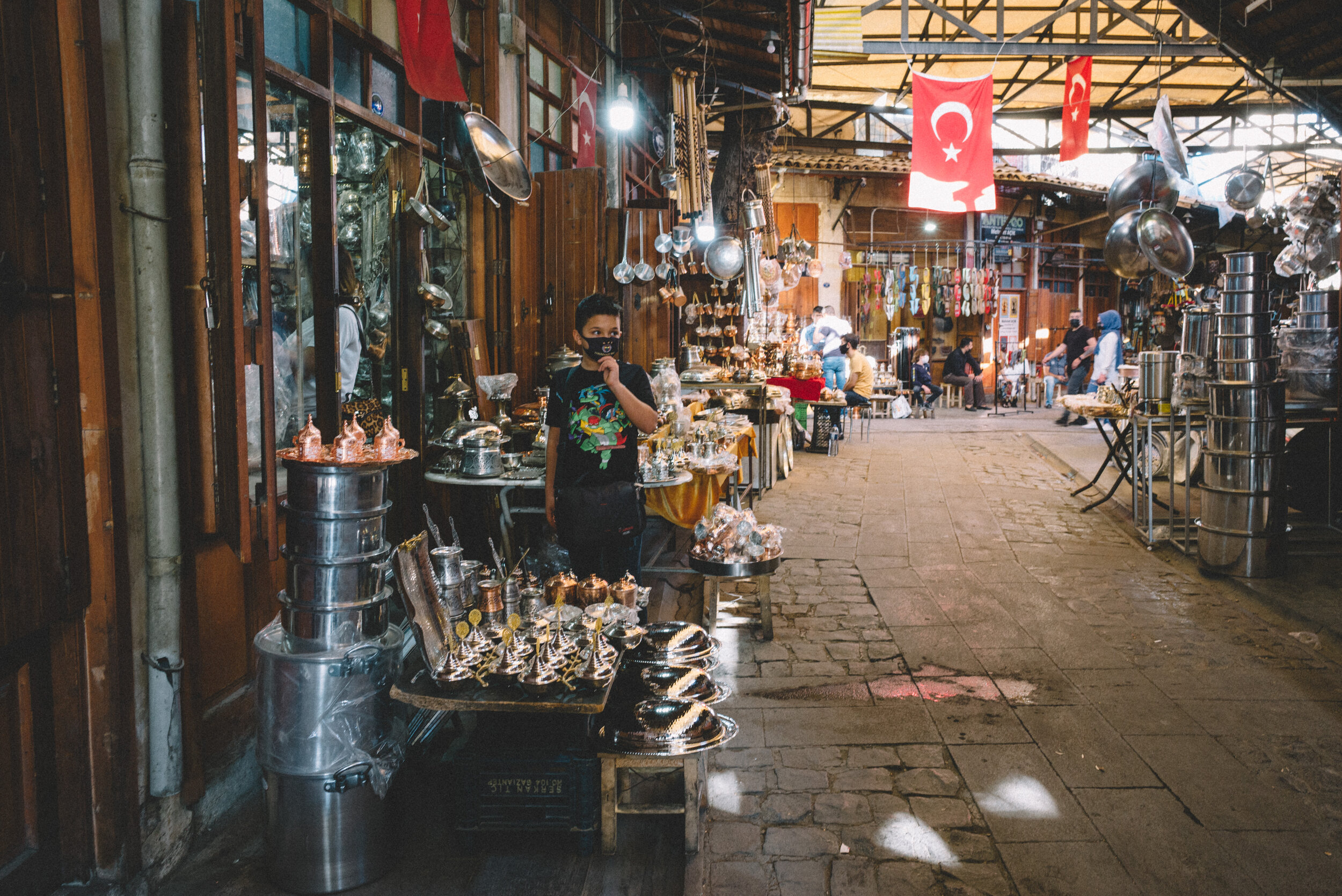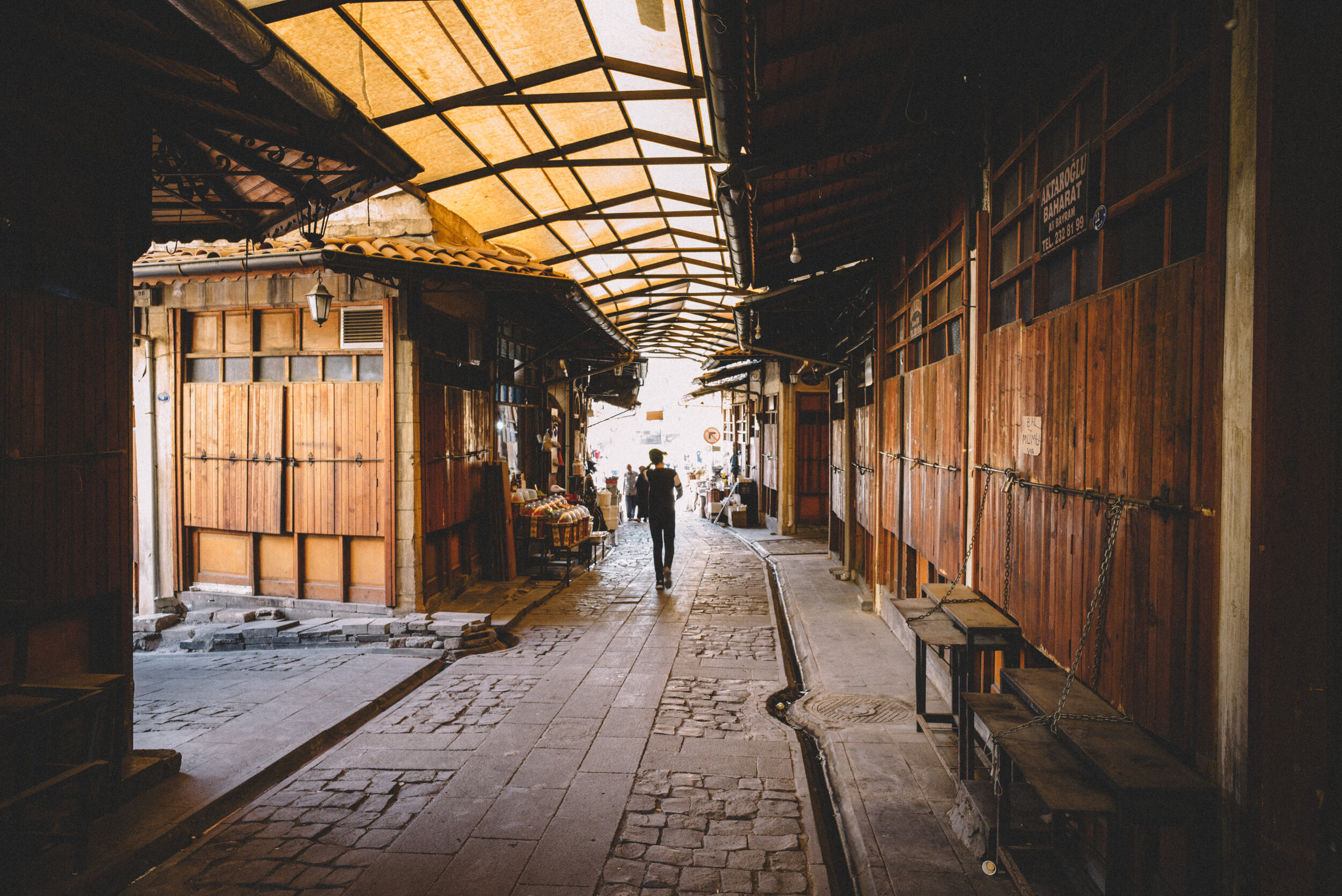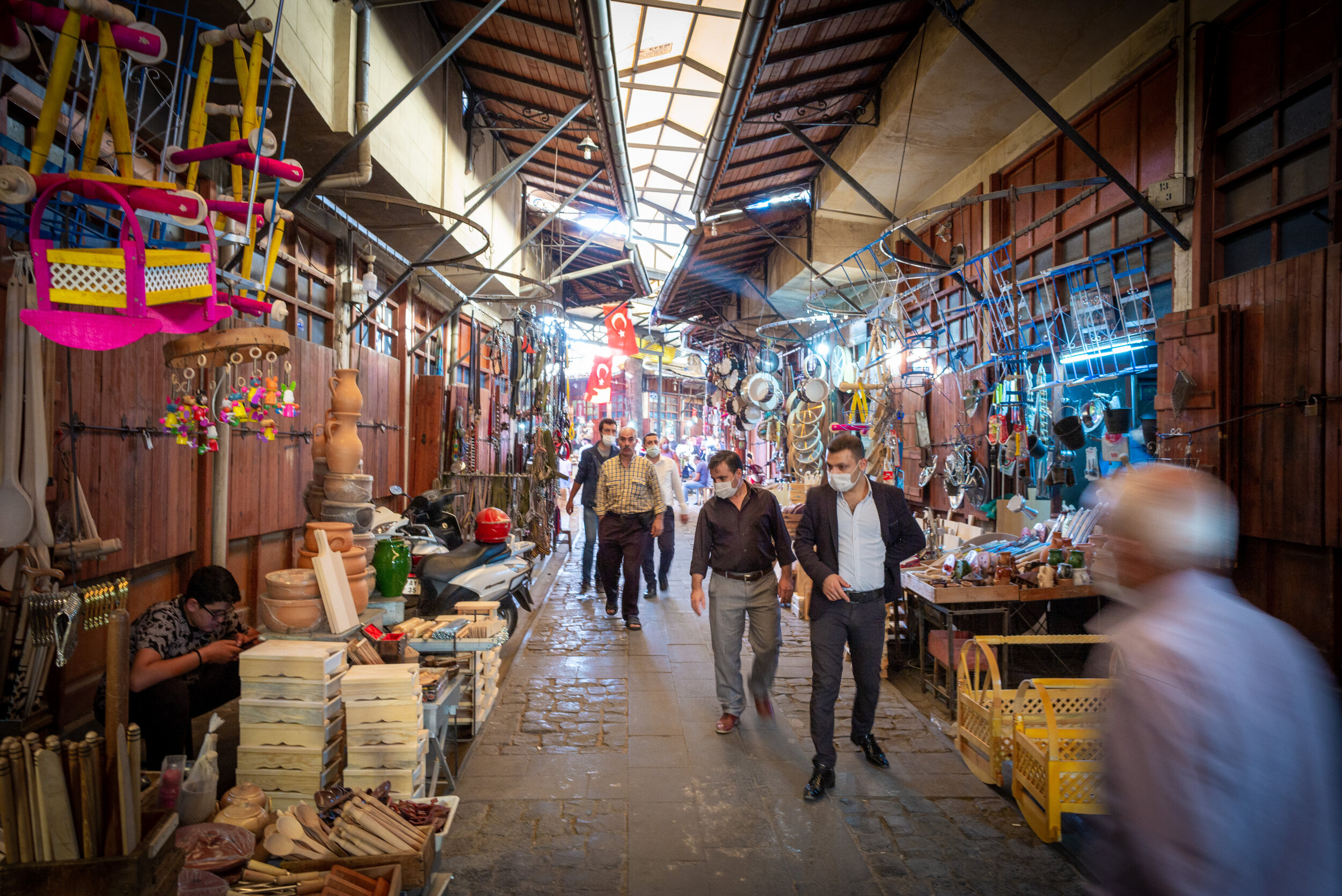In seven days of hopscotch hiking, chance encounters and decisions and roadmap scourging, Gaziantep has stood out to us, on the horizon, as the natural progression point. From here on out, we should know what we are or will be doing. This is the thought with which Daniel and I have consoled ourselves, as we trudged along: in Gaziantep lay answers for us. They will be hiding in this big place, to be discovered amongst the ancient gems that draw tourists with the promise of A 1000 and one Nights.
Gaziantep is old. It has known palmy periods in the Middle Ages and in the Franco-Turkish war, just like it has lived through hardship in the First World War. It is an economic centre, with knowledge of traditional trades (copperware and sandals) being pooled in the covered markets. Those place now double as tourist attractions, as does the old inner city around the base of the castle. ‘Antep’ is considered the capital for pistachio processing, since the surrounding region is so advantageous to the cultivation of the fistik. There is unrivaled baklava here - Daniel is over the moon. The two of us wander from the small cobblestone alleys unto larger boulevards with chain stores and brightly lit shop windows.
After the pistachio fields and the dusty, rural travelways, seeing to many people together, packed in their traffic jams and waiting in line to have their purchases weighed, is a strange change of scenery. That sensation is slightly enhanced by the fact that through the pandemic, it has been a while since I’ve seen crowds and operatIng retail at all. Most everyone that I see wears a mask.
More on those pistachio orchards: in coming to this huge place - the sixth largest city in the whole of Turkey - we have walked more than 20 kilometers, and most of it through exactly this landscape. it’s like hiking through that particular landscape has primed us extra for the dessert - a real treat.It is a beautiful sight: there are rows of pistachio and olive trees and large, red and ripe pomegranates hang over us. Some of the fruit falls spontaneously to the ground. We see how some of the fruits are taken from one such roadside tree suddenly, in a random guerilla-picking by a father and his two children. He’s showed them which ones will come off te overhanging branch easily, without fuss. His fatherly idea somewhat backfires, he realizes, when his offspring launch themselves into the tree, screaming with glee, and he is forced to call them back into the car. Behave yourselves! Go - the harvested pomegranates are dumped in the trunk for later use.
Among those rich agricultural scenes we also find an Ibrahim! Mr. Baryam is 55 and from Uruyatir. Together with his brother he owns and cultivates several acres on that small village’s outskirts. The duo are busy inspecting their harvests and have spotted us on the road as they drive back and forth between their fields. It must be the third time we walk past their tractor when they call us onto their land for a smoke.
- Our hike is ‘stranded’ at a gas station another 20 kilometers from the actual city. We’re hot and tired and we have a friend in Kareem who thought we were crazy to begin with and is happy to come collect us.
And more from our time in Gaziantep: in spite of our intended clarity we find ourselves still without definitive guidance. It makes for frustrated waiting in this big city - and it itself is so large that Daniel and I seem out of sorts. I worry we couldn’t leave the meeting with an Ibrahim for our portraits up to chance but I am also a bit muted by the big-city hustle.. On the first day, a few luxurious practicalities, or practical luxuries, are easily taken care of. A hot shower and a machine cappuccino. Calls to loved ones (as I did last time, on this trip I have held off on getting in touch before the fortnight is up). A full load of laundry and tumble-dry and a shave are quickly arranged, too. So that stil leaves the small matter to be discussed: how do we continue? More highway strolling Neither of us is satisfied with that prospect, for reasons both of security awareness and adventurousness. In an attempt to get a handle on the first, and inspired by Talas in Nizip who had reminded me of the app and inspired to be once again in-the-know, geopolitically speaking, I open the conflict live map. In the world beyond our grasp and stretched way beyond our hiking boots, the situation on October 10th:
A ceasefire has been announced between Azerbaijan and Armenia.
It’s close to a day since the major Turkish military activities in what the state calls its security buffer zone in northern Syria. Operation Peace Spring was meant to drive all fighter parties in that region away from Turkey’s borders and to prevent too strong a Kurdish hold there. Or, to speak with the AKP, to prevent a “terrorist corridor” from forming in that area. In Ankara this week, it was decided that these military operations will be continued.




